Related Research Articles

The Improved Order of Red Men is a fraternal organization established in North America in 1834. It claims direct descent from the colonial era Sons of Liberty. Their rituals and regalia are modeled after those assumed by men of the era to be used by Native Americans. Despite the name, the order was formed solely by, and for, white men. This whites-only rule was part of their bylaws until 1974, when the all-white clause was eliminated. Their current position is that they are now open to people of all ethnic backgrounds. In 1935 the organization claimed a membership of about half a million but, by 2011, that declined to a little more than 15,000.
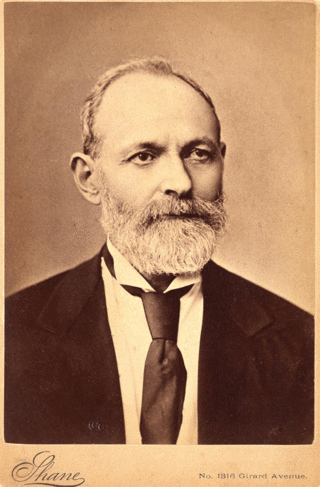
Uriah Smith Stephens was an American labor leader. He was most notable for his leadership of nine Philadelphia garment workers in founding the Knights of Labor in 1869, a successful early American labor union.

The Loyal Order of Moose is a fraternal and service organization founded in 1888 and headquartered in Mooseheart, Illinois.
Fraternal Order of Eagles (F.O.E.) is a fraternal organization that was founded on February 6, 1898, in Seattle, Washington, by a group of six theater owners including John Cort, brothers John W. and Tim J. Considine, Harry (H.L.) Leavitt, Mose Goldsmith and Arthur Williams. Originally made up of those engaged in one way or another in the performing arts, the Eagles grew and claimed credit for establishing the Mother's Day holiday in the United States as well as the "impetus for Social Security" in the United States. Their lodges are known as "aeries".
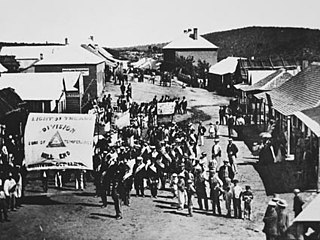
The Sons of Temperance was and is a brotherhood of men who promoted the temperance movement and mutual support. The organization was started in New York City in 1842.
A fraternal order is a voluntary membership group organised as an order, with an initiation ritual and traits alluding to religious, chivalric or pseudo-chivalric orders, guilds, or secret societies. Fraternal orders typically have secular purposes, serving as social clubs, cultural organizations and providing a form of social welfare through reciprocal aid or charitable work. Many friendly societies, benefit societies and mutual organisations take the form of a fraternal order.
The Improved Order of Heptasophs was a fraternal order in the United States that existed from 1878-1917. It was distinguished from its parent organization, the Order of Heptasophs in that its main focus was on insurance.
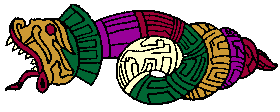
The Order of Quetzalcoatl, colloquially known as the "Q” is a Masonic appendant invitational body. It is heavily involved in philanthropy, and its main contribution is towards transportation funds for Shriners hospitals.
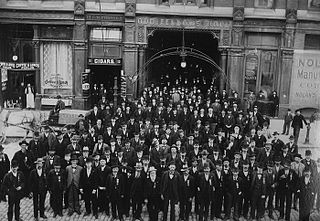
The Ancient Order of United Workmen (AOUW) was a fraternal organization in the United States and Canada, providing mutual social and financial support after the American Civil War. It was the first of the "fraternal benefit societies", organizations that would offer insurance as well as sickness, accident, death and burial policies.

The Order of the Sons of Hermann (German: Der Orden der Hermanns-Soehne, also known as Hermann Sons, is a mutual aid society for German immigrants that was formed in New York, New York, on July 20, 1840, and remains active in the states of California, Ohio, and Texas today. Open to members of any heritage today, the order provides low-cost insurance and mutual aid and has historically promoted the preservation of the German language and traditions.
The Artisans Order of Mutual Protection is a fraternal benefit society operating in the United States.
The Improved Benevolent Protective Order of Elks of the World (IBPOEW) is an African-American fraternal order modeled on the Benevolent and Protective Order of Elks. It was established in 1897 in the United States. In the early 21st century, it has 500,000 members and 1500 lodges in the world.
The Degree of Pocahontas are the female auxiliary of the Improved Order of Red Men, an American fraternal order. Despite using names based on common non-Native ideas about Native Americans, it was formed solely by and for white women. Membership is now open to patriotic American women of every race.
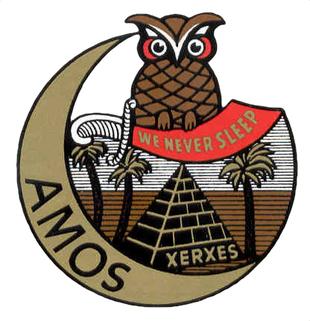
The Ancient Mystic Order of Samaritans (AMOS) is an unofficial appendant body of all Odd Fellows. It is recognized as the "playground for Odd Fellowship", (comparable to The "Shriners" within Freemasonry) and is known for engaging in public and private hijinks and spectacle, all in the name of good, clean fun. AMOS is open to male Odd Fellows in good standing over the age of 18 but has a close relationship with Ladies of the Orient ("LOTO"), which is only open to women. The two organizations typically meet at the same time and share in social events with each other. Like many other primarily social appendant bodies to fraternal organizations, the rituals and initiations of AMOS have a Middle-Eastern theme and the official regalia is a fez.
The Order of Calanthe, originally titled the Independent Order of Calanthe, is a fraternal benefit society for African American women. It was established in Louisiana in 1883 as an auxiliary to the Knights of Pythias of North America, South America, Europe, Asia, Africa and Australia. Calanthe was the wife of Pythias in the Greek legend Damon and Pythias.
The Red Men Hall is a historic clubhouse in Lagro, Indiana completed in 1911. The National Register of Historic Places listed the building in 2020.
References
- ↑ Ritual of the Haymakers Degree of the Improved Order of Red Men. National Haymakers. Berger Brothers Printers. Philadelphia PA. 1901
- ↑ "Improved Order of Redmen, Wenonah Tribe #182 Records, 1867-1969, Collection Guide" (PDF). Indiana Historical Society . Retrieved 2012-10-19.
- ↑ Schmidt, Alvin J. Fraternal Organizations Westport, CT; Greenwood Press p.154
- ↑ Ritual Ceremony. Berger Bros. Philadelphia. Adopted at the Annual Convention, January 9, 1888.
- ↑ Hay Culture